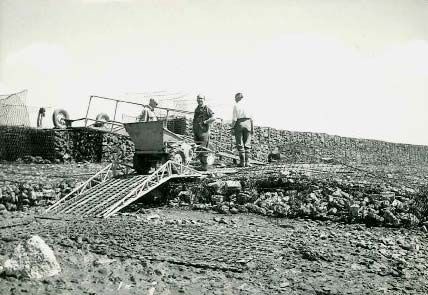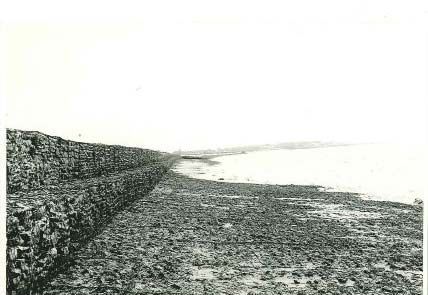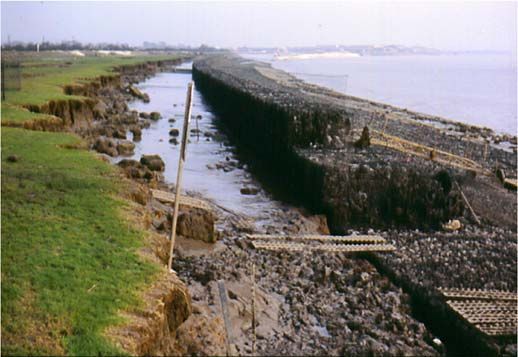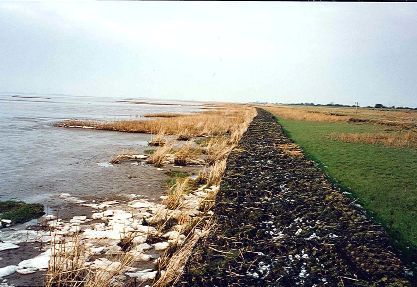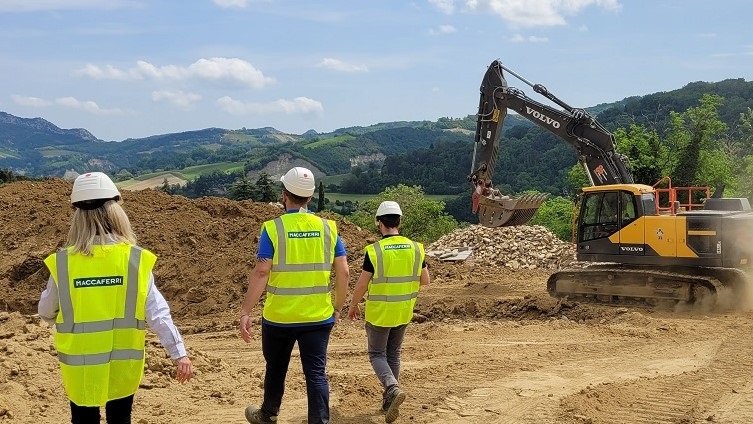Weirs, Culverts and Transverse Structures
BROUGH - EAST RIDING OF YORKSHIRE - United Kingdom
YORKSHIRE OUSE & HULL RIVER AUTHORITY
Robert McGregor and Sons
Maccaferri Construction
50 YEAR OLD GABION STRUCTURE – RIVER HUMBER
Problem
For many years there had been severe erosion to the north bank of the River Humber at Brough, which is some ten miles to the west of Hull. Much of the land at Brough is below the level of ordinary spring tides in the Humber, and the agricultural land, together with the main railway line to Hull, an aircraft factory, and a timber yard are protected by an earthen flood embankment. Erosion continued and the Hull and East Yorkshire River Board considered a number of schemes. It eventually agreed that the remedial works should comprise about 1000 yd. of half tide wall, and a similar length of gabion revetment.
Solution
A ‘half-tide’ gabion wall, 2m high on an 18m wide gabion apron (0.5m thick). The volume of protection was approximately 13,200 cu.m of PVC gabions, mesh 80 x 100— 2.7mm.
The wall was started by dumping 200 ton loads of lump chalk from a hopper barge at high water and it was completed by running tipping lorries on to it at low water.
The flexible nature of the gabion platform enabled it to follow exactly the profile of the foreshore, and if erosion continues the platform will be able to take up the new profile. The main purpose of the gabion wall is to provide sufficient weight to anchor the gabion platform.
The PVC coated gabions, which are specially produced for sea defence works, were used, and these were filled with blast furnace slag. The work was completed in 1964, and so far no maintenance work has been required on the gabions. The total cost of the works was £260,000. of which £188, 000 was for the half-tide wall and £72,000 for the gabion platform and wall.
The wall was built with its crest below the high water level to allow over topping at high tide and silt to build up behind the wall. The area behind the wall is now completely built up and the area has become a natural haven for wildlife By 1993 silt had built up over the gabion apron, almost to the crest and erosion has been completely halted.
Used Products


